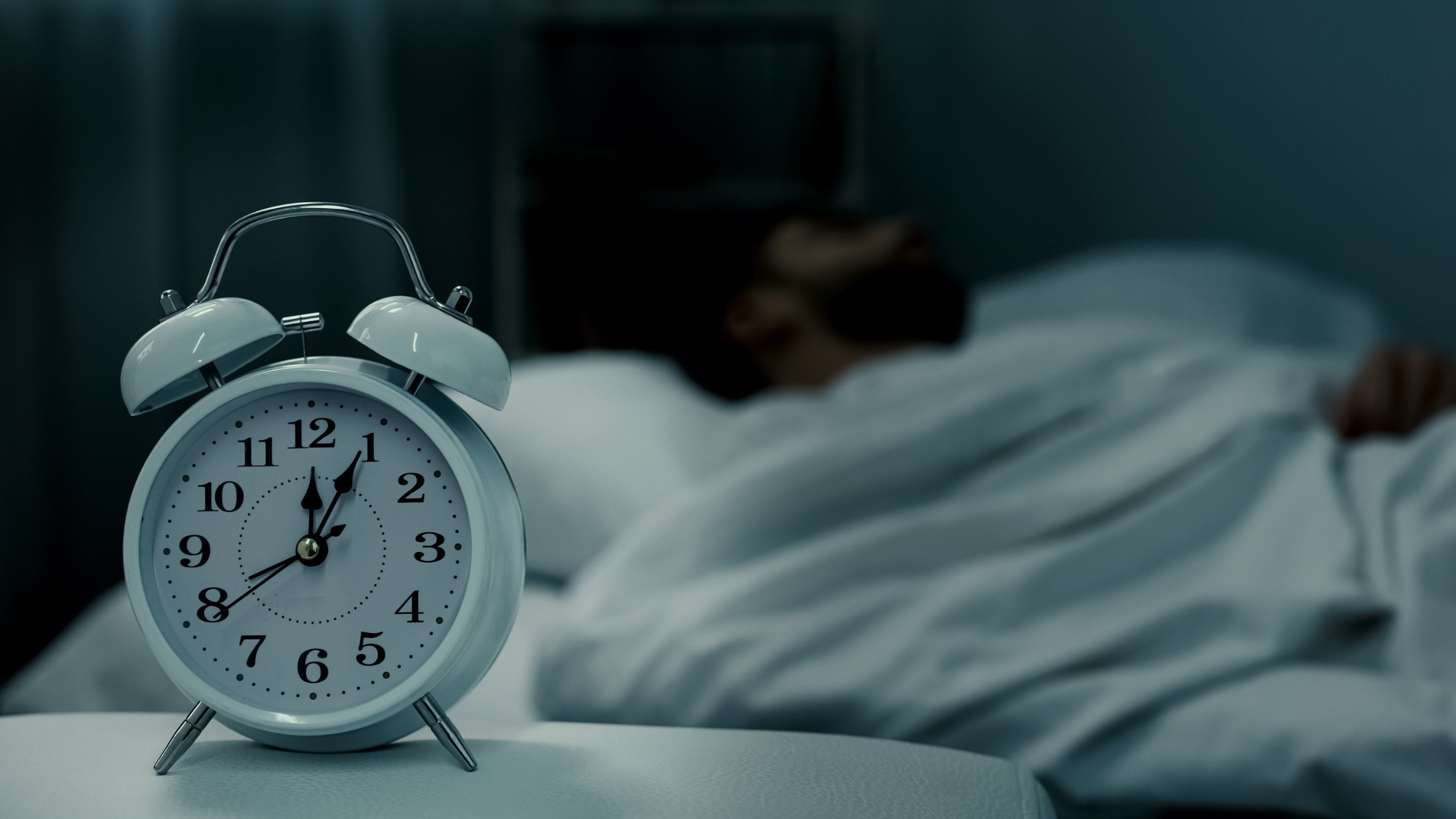A good night’s sleep is vital for our overall health and well-being, yet many of us struggle to get the rest we need. Whether due to stress, technology, or simply poor sleep habits, not getting enough shut-eye can have serious consequences—from decreased energy levels and focus to a heightened risk of chronic conditions.
The good news is that there are several strategies that can help you transform your sleep routine and enjoy the benefits of a well-rested life. Here are ten tips for better sleep that you can apply immediately.
Sync Your Sleep
If you go to bed and wake up at different times during the week, it may be time to consider sleep syncing. This involves adjusting your sleep schedule to match your body’s natural circadian rhythm.
Your circadian rhythm, which regulates your sleep-wake cycle, follows a 24-hour pattern and is influenced by light and dark.[*] It also controls hormone releases, such as the sleep hormone melatonin.
To practice sleep syncing:
- Go to bed and wake up at the same time every day (even on weekends!)
- Expose yourself to sunlight upon waking (i.e. opening your blinds or stepping outside)
- Avoid bright lights before bed (more on this later)
Consistency with these steps can help regulate your body’s internal clock and improve sleep quality.
Create a Relaxing Bedroom Environment
The environment in which we sleep can significantly impact the quality of our rest. A sleep-friendly bedroom should be quiet, dark, cool, and comfortable. Here are some recommendations for creating a relaxing bedroom environment:
- Reduce noise: Keep your bedroom as quiet as possible. If there is a considerable amount of noise outside your room, consider investing in earplugs or a white noise machine.
- Keep it dark: Block out any light sources, such as streetlights or electronics, with blackout curtains or an eye mask.
- Maintain a cool temperature: Keep your bedroom between 60-67°F for optimal sleep comfort.
- Up the comfort factor: Invest in a comfortable mattress and pillow that provide the proper support. Choose soft and breathable bedding to reduce heat and sweat.
- Reduce clutter: Keep your bedroom clean and organized. A cluttered, messy bedroom can create anxiety and stress, making it harder to fall asleep.
Limit Screen Time Before Bed
Exposure to electronic devices, such as smartphones, laptops, and televisions, can disrupt sleep and make it harder to fall asleep. The blue light emitted by these devices tricks the brain into thinking it’s daytime, suppressing the production of the sleep hormone melatonin. [*]
To improve the quality of your sleep, it’s recommended to limit screen time before bed. Here’s how:
- Turn off screens at least an hour before bedtime
- Avoid screens in the bedroom
- If you must use a device before bed, install a blue light filter app on the device to reduce the amount of blue light emitted.
Avoid Stimulants in the Evening
Stimulants, such as caffeine and nicotine, can make it harder to fall asleep and stay asleep. To improve the quality of your sleep, it’s recommended to stop consuming caffeinated drinks, such as coffee, energy drinks, tea, and soda, at least six hours before bedtime. If you enjoy a warm drink in the evening, opt for decaf coffee or herbal tea.
If you smoke cigarettes, ideally, take steps to quit or, at the very least, avoid smoking in the evening.
Engage in Relaxing Activities Before Sleep
Engaging in relaxing activities before bed can help reduce stress and anxiety, making it easier to fall asleep. Here are some recommendations for a relaxing bedtime routine:
- Read a book: Reading a book before bed can be a calming and engaging activity that helps you forget about the day’s stressors.
- Take a warm bath or shower: A warm bath or shower before bed can help relax your muscles and soothe your mind.
- Practice relaxation techniques: Techniques like deep breathing, meditation, and yoga can help reduce stress and calm the mind. Apps like Calm and Headspace offer guided meditations, breathing exercises, and relaxing sounds, making it easier to drift off into a peaceful sleep.
- Write in a journal: Writing down your thoughts and feelings before bed can help you process the day and reduce stress.
Exercise Regularly
Exercise can help reduce stress and anxiety, increase the production of sleep hormones, and regulate the body’s internal clock, opening the door to deeper, more restful sleep.
Aim to get at least 30 minutes of exercise five days a week.[*] Choosing activities you enjoy, whether it’s walking, swimming, or practicing yoga, can make it easier to stick to a routine.
Avoid Large Meals Before Bed
Eating late at night can increase the risk of indigestion, acid reflux, and sleep apnea, all of which can make it harder to fall asleep and stay asleep.[*] To improve the quality of your sleep, it’s recommended that you:
- Eat dinner early: Aim to finish your last meal at least three hours before bed.
- Avoid heavy and fatty foods: Heavy and rich foods can cause indigestion and interfere with sleep.
- Snack on light foods: If hunger strikes before bed, opt for a light snack, such as a piece of fruit or a small handful of nuts.
- Limit liquid intake: Avoid drinking large amounts of liquid before bed, as this can increase the need to use the bathroom during the night.
Address Sleep Disorders with a Professional
If you’ve tried the above tips and are still having trouble sleeping, it may be time to address a possible sleep disorder. Some common sleep disorders include insomnia, sleep apnea, restless leg syndrome, and narcolepsy.
If you suspect you have a sleep disorder, schedule an appointment with a healthcare professional. They can help diagnose the problem and recommend treatment options.
Start Working Toward Better Sleep Today
When it comes to maintaining healthy sleep, prevention is key. The goal is to take action before your sleep gets to a place where it’s negatively affecting your life.
If you’re looking for a way to stay on top of your sleep habits (and health in general), consider joining Knew Health—a monthly membership service that enables members to receive medical care through medical cost sharing.
Our members receive free telemedicine appointments where they can promptly address general medical concerns (like trouble sleeping) with a licensed doctor. Knew Health also provides members with free health coaching to establish healthy habits, like exercising, sticking to a sleep schedule, and avoiding harmful stimulants. By prioritizing sleep and incorporating healthy habits into your daily routine, you can encourage a restful night’s sleep and improved physical and mental health!









































